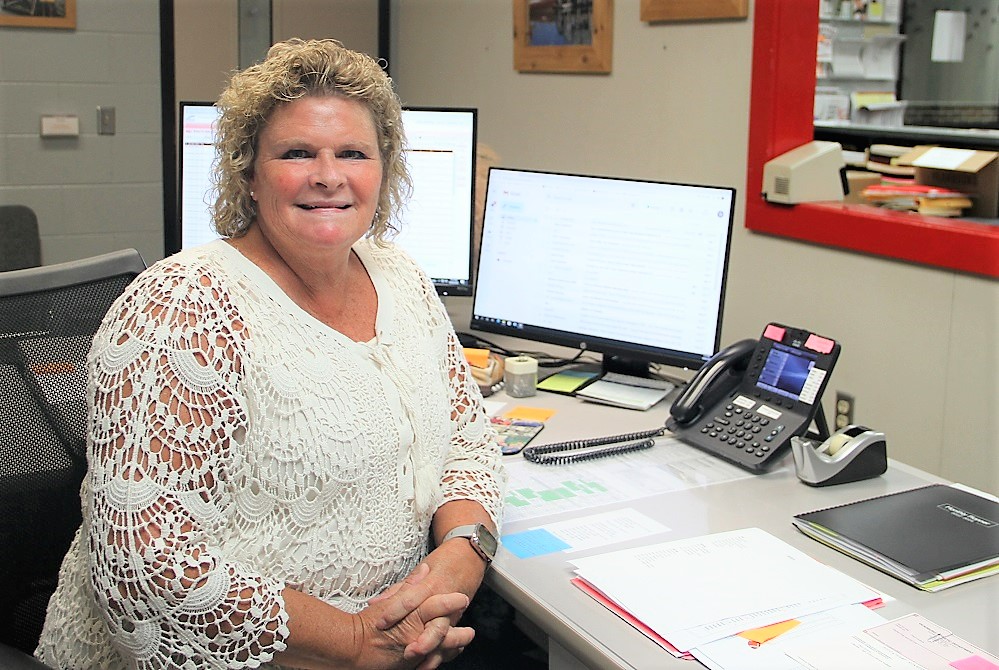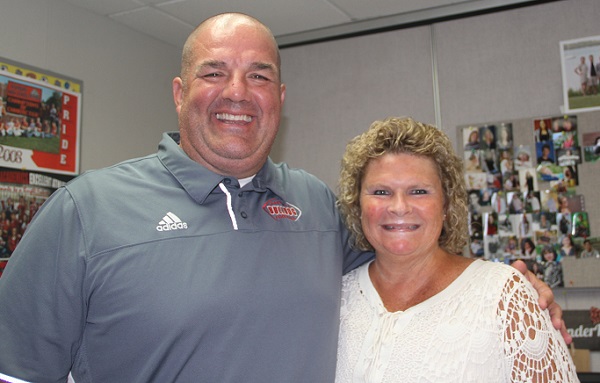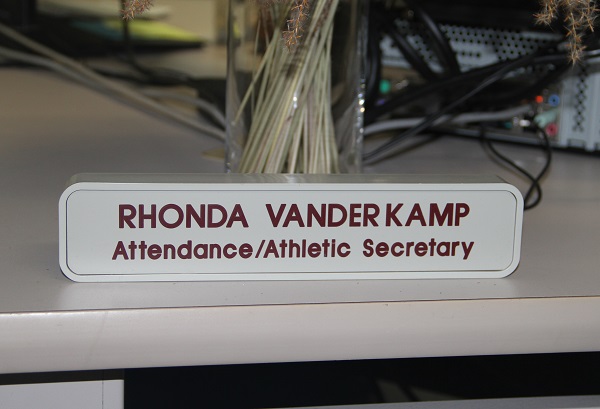
Nurturing Our Lower Level Programs
May 15, 2014
By John E. “Jack” Roberts
MHSAA Executive Director
When I’ve been faced with the most difficult choices as to different courses of action for the MHSAA, I’ve tried to face up to this reframing of the issue: “If we were creating the MHSAA for the first time today, would we do this, or would we do that?”
For example, would we or would we not limit coaches’ contact with athletes out of season? Would we have a 90-day period of ineligibility for transfer students or would it be 180 days?
There are other examples of such “either, or” questions I could provide, but none is as difficult or defining as this: Should school sports under the MHSAA’s auspices provide more opportunities for 7th- and 8th-graders and new opportunities for even younger students?
I won’t be coy about what I think our answer should be. I haven’t always felt this way, and I recognize it is a different opinion than some who are quoted in this publication; but today it’s my belief that if we were creating the MHSAA for the first time in 2014, the MHSAA would allow more contests and longer contests for 7th- and 8th-graders, and the MHSAA would have competition policies and programs for younger middle schoolers too.
I believe this is what parents want for their children and what students want for themselves; and I believe, within reason, that the better we serve these students in their junior high/middle school years, the stronger high school sports will be and the better these programs will support the educational missions of schools.
I believe we must begin to serve middle school students more comprehensively, and that our doing so today is the best hope we have for retaining comprehensive programs for high school students tomorrow. Not only does the lower profile and pressure of lower level programs nurture the highest ideals of educational athletics, they provide our highest hope for preserving those ideals at the high school level.
The Lasting Impact of First Impressions
The over-arching question before us is how to maintain policies that encourage multiple sport experiences for students at the junior high/middle school level while at the same time adjusting those policies in terms of grade level served and the numbers and lengths of contests allowed in order to be more attractive to junior high/middle school parents and to school districts which desire additional competition opportunities in the school setting for students prior to high school.
There is a good healthy discussion in our midst about the scope of junior high/middle school athletics – how much should occur and how young it should commence; and the result of these discussions may have long-lasting effect on students, schools and the MHSAA.
Here are two central issues:
1. Contest Limits
Many people over many years have contributed to developing the current season limitations for the number of contests permitted by MHSAA member junior high/middle schools. These good people have believed in a philosophy of sports at this level that encourages students to try multiple sports.
“Kids haven’t fully matured yet,” they say. “Kids haven’t been exposed to some sports yet. They don’t know what they might like or be good at. So let’s have policies and programs that encourage new opportunities and experiences at this level.”
The season limits that have been put in place allow some junior high/middle schools, or their entire leagues, to fit four distinct seasons in a nine-month school year, consistent with this over-arching philosophy to encourage these students to try new things and learn.
There is another educationally grounded and equally astute group of administrators and coaches who are concerned that the current limits are too severe in comparison to non-school youth sports programs. For example, community/club basketball or soccer programs may schedule 15 or 18 or more games per season versus the MHSAA limit of 12 at the junior high/middle school level.
These folks think these restrictive limitations create a disincentive for kids to play school sports, and that many of those who have no place in junior high/middle school sports have no interest later in high school sports.
2. 6th-Graders
Historically, the popular opinion among educators has held that 7th and 8th grade is early enough for schools to provide competitive athletics, early enough to put youth into the competitive sports arena, and early enough to pit one school against another in sports.
Today, however, many educators and parents point out that such protective philosophies and policies were adopted about the same time “play days” were considered to be the maximum exertion females should experience in school sports. Some administrators and coaches argue that both our severe limits on contest limits at the junior high/middle school level, and our refusal to serve 6th-graders, are as out of date and inappropriate as play days for females.
Today, in nearly four of five school districts with MHSAA member schools, 6th-graders go to school in the same building with 7th- and 8th-graders. But MHSAA rules don’t allow 6th-graders to participate with and against 7th- and 8th-graders. In fact, the MHSAA Constitution doesn’t even acknowledge that 6th-graders exist.
Today, in many places, 6th-graders have aged-out of non-school, community sports, but they are not permitted to play on MHSAA junior high/middle school teams.
Last school year, 50 different school districts requested this rule be waived for them, and the MHSAA Executive Committee approved 46 of 50 waivers, allowing 6th-graders to compete on 7th- and 8th-grade teams. During 2011-12, 37 of 40 requests for waiver were approved, in all cases for small junior high/middle schools. Many of these schools want, and some of them desperately need, these 6th-graders to fill out junior high/middle school teams.
Young people are starting sports much younger today than 100 years ago when the MHSAA was created. Younger than even 50 years ago when the MHSAA was incorporated. If the MHSAA were created today to serve any students before 9th grade, I’m certain it would not leave out 6th-graders who are walking the same halls with 7th- and 8th-graders, and who have been playing competitive sports almost since the first day they started walking at all.
Eyes on the future
The most important thing we can do to enhance high school sports is to grow junior high/middle school sports programs. The earlier we disconnect young people from non-school sports and engage them in school-sponsored sports, the better our chances are of keeping high school athletic programs healthy, and the better our prospects are of keeping both participation rates and conduct standards high.
School sports are in competition for hearts and minds of young people. Our competition includes movies, jobs, cars, video games, boyfriends and girlfriends and club sports ... especially club sports. School sports needs to market itself better, and part of better is to be available earlier – much sooner in the lives of youth. More contests at the junior high/middle school level and more opportunities for 6th-graders should be parts of our marketing strategies on behalf of educational athletics generally.
For at least 50 years there have been predictions by people outside of our member schools that the system of school-sponsored sports that is almost unique to the United States would someday give way to the system of most countries where youth sports is provided by non-school community groups and private athletic clubs. Some people challenge school-sponsored sports on a program basis – for example, that competitive athletics creates a distraction to the core educational mission of schools. Others may challenge school-sponsored sports on a financial basis – that interscholastic athletics compete for the limited resources communities have to support their schools.
Today there also exists among our member schools a small percentage of administrators who have come to their leadership roles without involvement in school sports and who either desire and believe that interscholastic sports will be moved from schools to communities or who do not want but predict that such will occur as resources for schools continue to shrink.
I believe this is more likely to happen, or to happen sooner, if we do not change our approach to junior high/middle school sports. If we continue to restrict 7th- and 8th-graders to so few contests of such limited length compared to what those students have in non-school sports, and if we continue to offer nothing for younger students, we essentially and effectively force these students to non-school sports.
It is an often cited statistic that between 80 and 90 percent of all young people who ever begin playing competitive athletics stop playing before they reach the age of 13, meaning the vast majority of young people never, ever are involved in school programs. Thus, it is no mystery why people question the future of school sports. We’re doing nothing to make programs available to them. They have no experience in them.
Our restrictive and possibly outdated policies and procedures regarding contest limits and lengths and the age at which we begin to serve junior high/middle school students may assure that the dire predictions about school sports’ future will be accurate. We are doing too little, too late. It is marketing at its worst.
In my mind there is little doubt that we are doing too little too late with junior high/middle school students. Now the challenge before us is to think beyond “we can’t afford it” and make some necessary changes, while still avoiding a system that allows or even encourages schools doing too much too soon.

Indispensable Only Begins to Describe Vicksburg Athletics 'MVP' VanderKamp
By
Pam Shebest
Special for MHSAA.com
September 20, 2022
VICKSBURG — Reading, traveling, enjoying time with family and sitting by the pool are all on Rhonda VanderKamp’s retirement list.
 But before she embarks on that journey in June, she is finishing her 21st year as Vicksburg High School athletic secretary.
But before she embarks on that journey in June, she is finishing her 21st year as Vicksburg High School athletic secretary.
One person not looking forward to that June day is Vicksburg athletic director Mike Roy.
“I keep waking up every day coming to work, and maybe she’ll tell me I’m going to do one more (year),” Roy said.
“Like the Tampa Bay Buccaneers when Tom Brady retires, they’re going to dearly miss him. That’s the best analogy I can give; that’s how important she is to the team we have here.”
Roy should know.
The two have worked together all 21 years, forming a work family that’s become an anomaly in the world of high school athletics.
Her own family is the reason VanderKamp landed at Vicksburg.
She left her job at Heco, formerly Hatfield Electric, in Kalamazoo, after 17 years because “I wanted to be on the same schedule as what my kids were,” she said. “This allowed me to have my summers off with them and Christmas and spring breaks. It’s been just fantastic.
 “Both of them were athletes in school. My daughter was in middle school when I started. I think it was good for them to have me here when they were in high school.”
“Both of them were athletes in school. My daughter was in middle school when I started. I think it was good for them to have me here when they were in high school.”
VanderKamp and Roy were hired into the athletic department within a month of each other.
She realizes how unusual their tenure is when she attends conferences.
“They’ll ask you to stand up, introduce yourself and say what school you’re from, how many years you’ve been an athletic secretary and how many athletic directors you’ve been through,” she said.
“It’s always such pride for me to say I’ve been an athletic secretary ‘X’ amount of years and I’ve only had one athletic director. That’s just not heard of these days.”
Roy, always quick with a quip, looked back at their first year working together.
“I told her from Day One: I’m like a new husband. You train me the way you need me to be,” he laughed.
He then got serious: “She’s the MVP. There’s so much stuff that gets done in this office behind the scenes, and it’s all because of Rhonda VanderKamp.”
Roy is not the only one calling VanderKamp “MVP.”
Seven-year wrestling coach Jeff Mohney echoes that sentiment, noting that his wrestlers call her Mrs. Rhonda or Mrs. V.
“She has never told me ‘no, I don’t have time for that,’” he said. “She handles everything from contracts, referee fees, cancelations, and student-athlete eligibility. She knows every student at Vicksburg and most of their parents.
“What separates her from others is her commitment to the coaching staff and the student-athlete. She is family-driven and lets us be a part of that. She shares stories of her family and asks about ours as well.”
Mohney said one portion of their tenures together stands out in his mind.
“Her commitment to us was not more evident than when masks were required at school,” he said. “We didn’t see her face for over a year. She was trying to keep her families safe to the best of her ability.
 “Now the highlight of my day is seeing Mrs. Rhonda’s smile. Vicksburg wrestling would not be relevant without Mrs. Rhonda’s commitment to us.”
“Now the highlight of my day is seeing Mrs. Rhonda’s smile. Vicksburg wrestling would not be relevant without Mrs. Rhonda’s commitment to us.”
One of VanderKamp’s proudest achievements during her 21 years was the addition of 10 varsity sports: hockey, equestrian plus boys and girls clay target, bowling, lacrosse and skiing.
In addition to her athletic secretary duties, she is also in charge of coordinating attendance and discipline.
“All the sick kids, the late kids, the kids who need to leave early all come through my office,” she said.
“Discipline also comes through my office, although I have help with that now.”
Her typical day begins about 7 a.m., and she is usually greeted by the ringing of phones.
“The kids are coming in with notes they have to get out early, parents are calling for sick children, I’m listening to (phone) messages,” she said.
“Once school starts, it’s constant activity. I always make sure I confirm my refs scheduled for that day, make sure my rosters are ready to go.
“Mike always double checks transportation. It’s a cycle. You just know what needs to be done, and you go with it.”
She said the job has also become a lot busier with the additional sports including “entering every athlete into the athletic software, making sure they’re all getting their awards, keeping on top of coaches when they add athletes, submitting pictures once I receive them onto our website and to boosters so we can print a booklet for each season.”
Time to travel abroad
The travel part of her retirement will include a trip to the Netherlands to visit Suzan Hauwert, who lived with the VanderKamps during the 2001 school year, and to Germany to visit Annika Busch, who lived with the family in 2003. Both were exchange students.
In addition, “My husband spoke Dutch before he spoke English, so his parents came right over on the boat,” the soft-spoken VanderKamp said.
Her husband, Gerrit, was in the U.S. Army and stationed in Germany, so they also plan to visit some of his old bases.
While VanderKamp has never visited Europe, both exchange “daughters” have been back to Vicksburg several times to visit.
 “Both were in my daughter’s wedding five years ago,” she said. “They’ll join us on vacations or come to visit. It’s such an intense bond we share with them.”
“Both were in my daughter’s wedding five years ago,” she said. “They’ll join us on vacations or come to visit. It’s such an intense bond we share with them.”
She also is looking forward to spending more time with 2-year-old granddaughter Presley, who lives in Portage with parents Andrea (VanderKamp) and Michael Prior.
Son Robert, and his wife, Shelby, live in Kalamazoo.
While she expects to leave her job in June, she said she does not need a lot of praise or attention – but deservingly is receiving it.
One of those praising her is Vicksburg’s 16-year volleyball coach Katrina Miller.
“Rhonda is a miracle worker” Miller said. “I swear she can do it all!
“As far as impacting my sport, it’s always nice for me to know that things are in order with my team and their paperwork and information.
“I have emailed her at odd hours looking for copies of physical forms or eligibility for tryouts and she is always right on it. She is going to be very missed, but we are happy that she will be able to have some time with herself and with her family.”
While her daily job may be over in June, VanderKamp and the Bulldogs will see each other again.
“I love the kids, I love my co-workers,” VanderKamp said. “I plan to sub if they need me in the office, so it’s not really goodbye. It’s ‘See you around.’”
 Pam Shebest served as a sportswriter at the Kalamazoo Gazette from 1985-2009 after 11 years part-time with the Gazette while teaching French and English at White Pigeon High School. She can be reached at [email protected] with story ideas for Calhoun, Kalamazoo and Van Buren counties.
Pam Shebest served as a sportswriter at the Kalamazoo Gazette from 1985-2009 after 11 years part-time with the Gazette while teaching French and English at White Pigeon High School. She can be reached at [email protected] with story ideas for Calhoun, Kalamazoo and Van Buren counties.
PHOTOS (Top) Rhonda VanderKamp sits at her desk as she begins her 21st year in the Vicksburg athletic department. (2) VanderKamp has worked all 21 years alongside athletic director Michael Roy. (3) The VanderKamp family, from left: son Robert VanderKamp, daughter-in-law Shelby VanderKamp, son-in-law Michael Prior, granddaughter Presley Prior, daughter Andrea Prior, Rhonda VanderKamp, husband Gerrit VanderKamp and father Bob Rainwater. (4) Rhonda VanderKamp has welcomed thousands of students during her time as athletic and attendance secretary. (Top two and bottom photos by Pam Shebest; family photo courtesy of Rhonda VanderKamp.)

